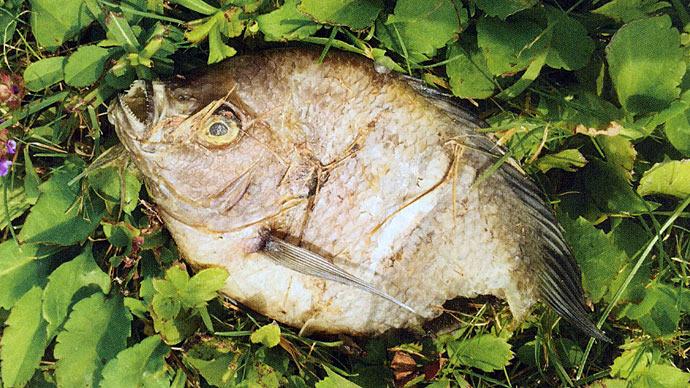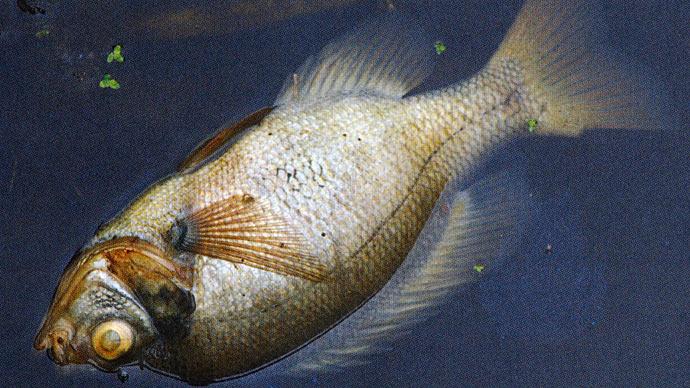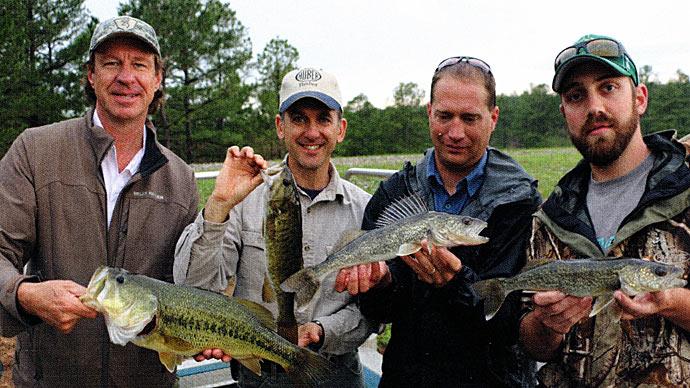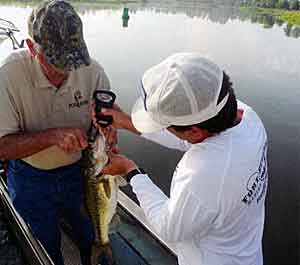
Okay, your pond survived the doggoned-est of dog days of summer. No fish kills, no major breakdowns of equipment, no sunken boats.. .well maybe the kids did sink the boat, but at least they got it back to shore.
What do you think happened under water over these last few months?
Pond life runs in cycles. It's based on a number of factors. Think about it this way. In spring, water warms and your pond comes to life. Fish spawn, primarily to replace themselves. Most fish have large numbers of offspring, compared to other wildlife. But, nature offers numbers somewhat based on parental care. Shad, for example, lay way more eggs per unit of body weight than smallmouth bass. That's because shad lay their eggs, go away to feed, and wish those eggs luck. Smallies, on the other hand, are vigilant to care for their young, sitting on the nest until the eggs hatch and fry are big enough to go hide—fending off all comers.
Spring is the biggest season for spawning. As fish reproduce, water temperatures continue to rise, triggering all kinds of fast moving natural responses. Plankton begins to grow in the water column, periphyton escalates on the harder substrates, and aquatic insects come to life in a perfect pattern of timing to feed all the newly hatched mouths that are appearing. Aquatic plants are growing where temperatures, food, and habitat allow. Oxygen levels begin to de-stabilize with more photosynthesis occurring during daylight hours and respiration consuming the life-giving molecule at night. As we edge into summer, baby fish grow (many are eaten) and predator fish are growing like crazy. Nature continues to offer what she can with dynamic growth of plants and microscopic life suspended in the water column, which provides places for medium-sized fish to hide and feed.
As summer becomes full blown and water temperatures push to their highest points of the year, you'll see some fish become lethargic—it's too hot.
Others, such as bluegill, thrive. Some plants diminish, some tend to dominate. Water temperatures stabilize for a few months at their peak, unless a weather event changes things. Fish tend to move away from the shoreline, suspending over the thermocline as their bodies seek the best temperature with adequate amounts of oxygen.
During this span, the system is taxed. Warm water holds less oxygen than cooler water. When a pond stratifies, water below the thermocline loses its oxygen—and can't be replenished without aeration or a turnover—you don't want a turnover this time of year. Water below the thermocline is essentially stagnant in shallow ponds.
Your game fish grow, albeit more slowly in summer than in spring or fall. Keep in mind that the game fishes food chain is dwindling in number, but gaining in mass. In other words, lots of spring's baby fish have been eaten, but those remaining are growing larger, becoming more substantial as food items for bigger fish.
As summer winds down, your pond should have an adequate food chain to support it throughout the fall months, deep into winter, ideally all the way until water begins to warm next spring.
How do you measure this stuff?
Several ways.
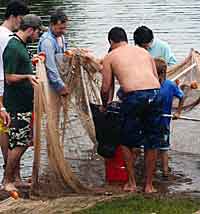
Sample your fishery. Pull a seine later this month and see what kinds of small fish you have. Buy a 20-foot seine from the tackle store and get a buddy to help you pull it through shallow water and see what you've got. A cast net might work as well. What are you looking for? Your main mission here is to make sure you've got a good food chain going into fall and winter. You want to confirm how well your fish reproduced over the season and also see how many different size classes offish you have, especially baitfish.
Go fishing. Weigh and measure some of your fish. Compare to the charts we've been publishing the last few issues. You can see how your fish compare to standard fish. Then, decide what you need to do. Catch and remove with a slot limit? Catch and release? Stock a missing species?
What about aquatic plants? Now could be a good time to remove or treat excess amounts of plants to gain a head-start on next year's management strategy. You decide.
That's how you make sound decisions to stay proactive, especially if one of your goals is to grow big fish.
Summer is productive, especially for smaller water...productive in the sense that you can rapidly increase the sizes and numbers of fish you have.
But, summer can also be the toughest months of the year on the entire pond.
Reprinted with permission from Pond Boss Magazine

